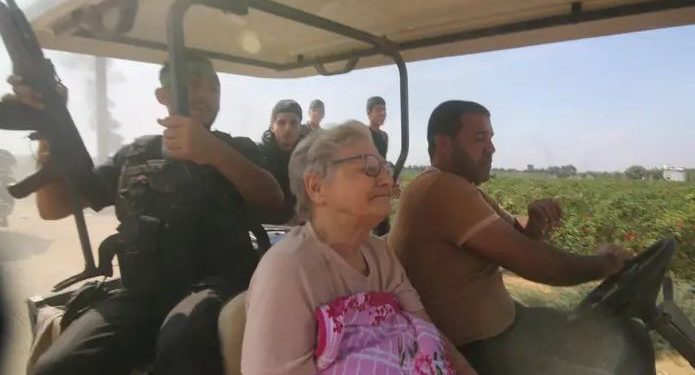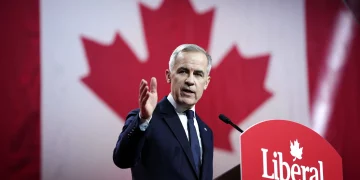Jerusalem: A four-day cease-fire in the Israel-Hamas war began Friday in Gaza as part of an agreement that Qatar helped broker. Thirteen Israeli hostages were released, according to Israeli media, and 12 Thai hostages were also freed. The deal includes the release of dozens of hostages held by militants and Palestinians imprisoned by Israel.
With the truce deal comes increased shipments of fuel and supplies into Gaza — though still only enough to dent the needs of the 2.3 million Palestinians in Gaza who have endured weeks of Israeli bombardment, according to aid groups. Israel has agreed to allow the delivery of 130,000 litres of fuel a day into besieged Gaza for humanitarian needs for the duration of the truce.
More than 13,300 Palestinians have been killed, according to the Health Ministry in Hamas-ruled Gaza after a dayslong pause in its casualty report, which it attributed to the health system’s collapse in northern Gaza making it impossible to provide a detailed count.
Israeli Prime Minister Benjamin Netanyahu has said he will press ahead with the war after the cease-fire expires. Some 1,200 people have been killed in Israel, mostly during the initial incursion by Hamas.
Here’s what’s happening:
Red Cross helping reunite hostages and prisoners
Geneva — The Red Cross says it has begun a “multi-day operation” to reunite hostages and detainees on both sides of the conflict between Palestinians and Israelis.
The group’s announcement came as Israeli media reported the Hamas militant group on Friday released the first batch of hostages under a cease-fire deal. The deal calls for 50 hostages to be freed over a four-day truce, with Israel to free 150 Palestinians in prison.
The International Committee of the Red Cross says it will also be ferrying in medical supplies for hospitals in Gaza.
The Geneva-based humanitarian organisation said on Friday it had no role in the negotiations and that the parties in the conflict agreed to the details of the operation, including who will be released and when.
“Our deep desire is for all hostages to be released, and that civilians be shielded from the pain and suffering that armed conflict brings,” said Fabrizio Carboni, the organisation’s regional director for the Near and Middle East.
Head of us aid agency calls for speed-up of humanitarian aid to Gaza
Washington — The lead US development agency is urging a rapid ramping-up of humanitarian assistance to battered Gaza for the long term, calling it “urgent and imperative.”
Samantha Power, head of the US Agency for International Development, made the call in a statement Thursday, as a carefully negotiated cease-fire and hostage release began in the Gaza Strip.
Power called the cease-fire “a direct result of US diplomacy with our partners in the region.”
With 1.7 million people in Gaza internally displaced and virtually all of the 2.3 million people there needing aid, “the scale of humanitarian needs in Gaza is staggering,” Power wrote.
“It is both urgent and imperative that lasting mechanisms be put in place to significantly accelerate the pace of sustained aid into Gaza,” Power wrote.
As the largest donor to UN assistance in Gaza, the US also is urging other countries to fund emergency appeals from the United Nations for urgent assistance for Gaza’s civilians, Power said.
Break in war extends to Iran-backed militias — for now
Baghdad — Iranian-backed militias that have launched dozens of rocket and drone attacks on bases housing US troops in Iraq and Syria in recent weeks held their fire on Friday, the first day of the a four-day truce between Israel and Hamas in Gaza.
The lull came after an escalation this week in which US warplanes killed multiple militants from the powerful Iraqi Kataib Hezbollah militia in response to the first use of short-range ballistic missiles against US forces at Al-Asad Air Base.
Milita spokesman Jaafar al-Husseini said his group is “not necessarily” observing the truce — which only officially pertains to Gaza — but is “monitoring” the behaviour of the United States and will act accordingly.
Kataib Hezbollah and other Iranian-backed militant groups under the umbrella group called the Islamic Resistance in Iraq began striking US facilities October 17 and have since launched more than 60 attacks in Iraq and Syria. The militant groups have said they are retaliating against the US for its support of the Israeli offensive in Gaza that has killed more than 13,300 Palestinians, following the Hamas-led October 7 surprise attack that killed about 1,200 Israelis.
Likewise, in southern Lebanon, where the Lebanese militant group Hezbollah has exchanged fire with Israeli forces throughout the Israel-Hamas war, a cautious calm prevailed Friday. Some of the more than 55,000 Lebanese displaced by the fighting began returning to inspect their houses and businesses in border towns.
AP






































